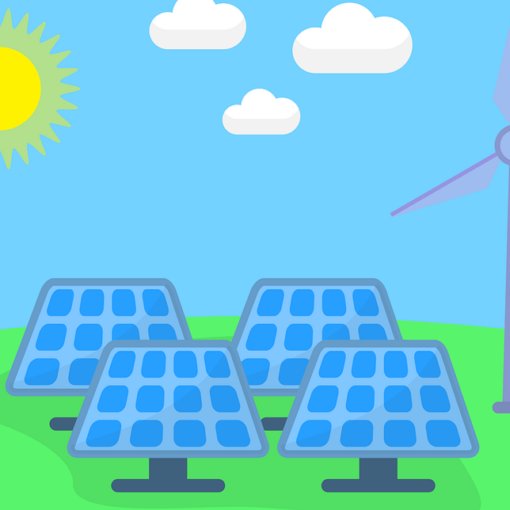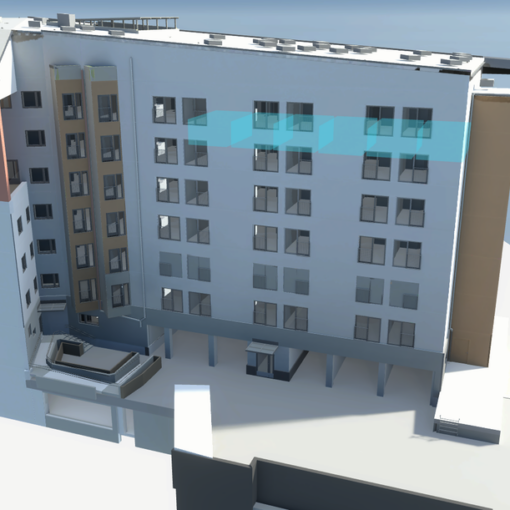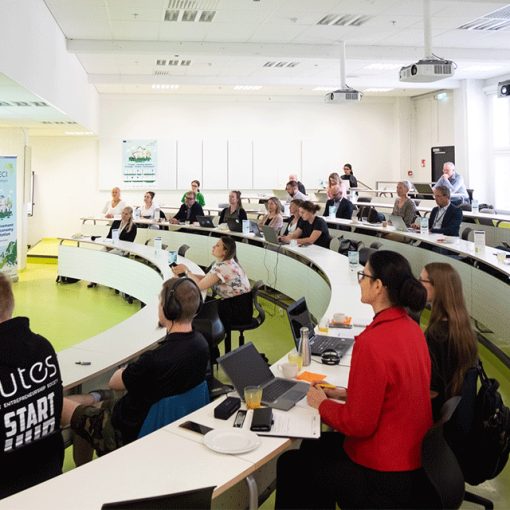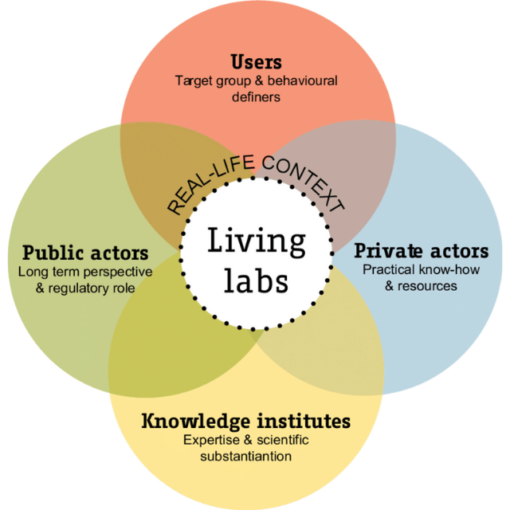In May 2022, the CECI team opted for sustainable travel and chose the fast train from Marseille, France to Zaragoza, Spain to cover around 800 kilometres. The expected six-hour journey lasted eleven hours due to the train failure. As a result, of this incident, the program for the study visits had to be rearranged.
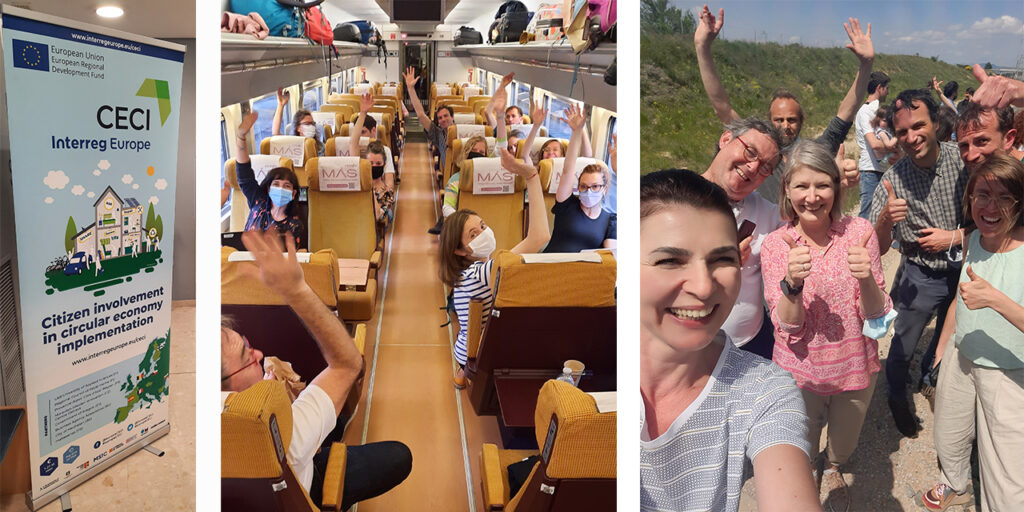
The Department of Climate Change and Environmental Education, Government of Aragon, hosted the event. The official meeting began with the visit to Aula de Medio Ambiente Urbano, an environmental education classroom specializing in social and environmental problems in urban spaces. Link to Urban environmental facility – “La Calle Indiscreta”
The visitors can learn about various environmental issues, such as the effects of climate change and mitigation, sustainable consumption, energy, water-saving, etc. The space is divided into smaller units focusing on different things. There are about 5,000 visitors a year, the largest group being school classes. (Zárate Diez 2022.)
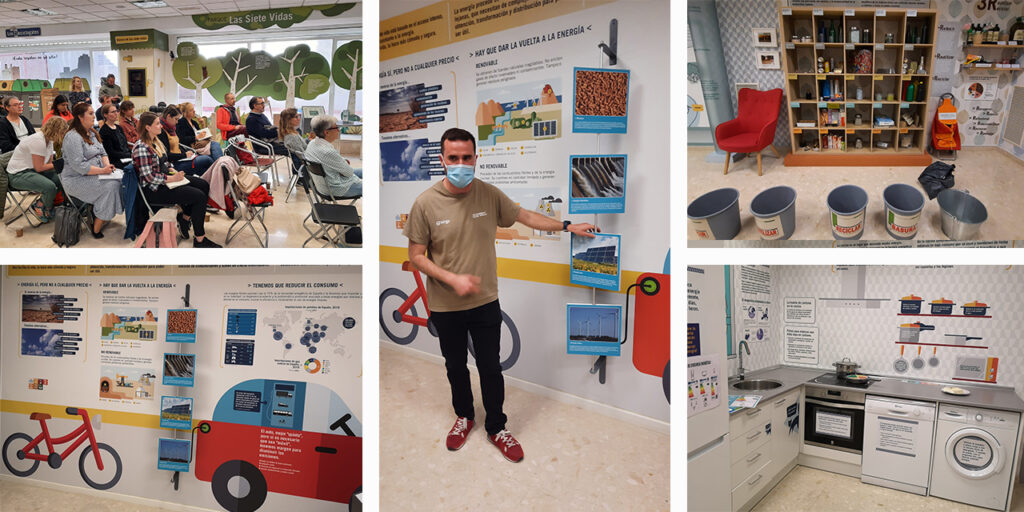
Enjoying the sunny weather the CECI group walked through a large city park to visit an example of composting at schools. Here, children with special needs are involved in waste recycling and composting. Biowaste generated in the school kitchen and canteen is treated in a composter in the schoolyard. The soil generated in the compost is utilized by students for gardening on-site. The school acts as a pilot in waste collection, sorting and composting.
Textiles, secondhand clothing and social work
In the afternoon, the program focused on combining secondhand clothing and social work. First, the CECI group visited the social company Aropa2, which collects 2,000 tonnes of textiles and shoes a year in the city of Zaragoza through collection boxes. About 80-85% of the amount is sold or donated, the rest goes to material recovery and disposal. Donated textiles are sorted, washed, and repaired. (Puente 2022.)
The textiles theme continued by visiting the Latido Verde Clothing store of the social inclusion company A Todo Trapo. Latido Verde is a second-hand clothing store that sells clothes and shoes collected in the same collection chain as for Aropa2. Link to Latido Verde Good Practice
The third example of combining secondhand clothing and inclusion of social work, El Ropero de Ute (Utebo Wardrobe), is a citizens initiative managed by volunteers. It is a place where clothes donations from citizens are received. Donated clothes are first sorted, washed and if needed repaired. Utebo Wardrobe works together with the municipal social services and offers clothes for people in need. Link to Utebo Wardrope Good Practice
These above-mentioned examples combine three pillars of sustainable development, environmental, social and economic sustainability by offering jobs, education and raising awareness to environmental issues. They themselves also act as they teach, e.g., by installing sensors in collection boxes to provide real-time data on occupancy and route planning to better save kilometres and emissions, remodelling and upgrading outdated clothes.
Authors
Katerina Medkova works as an RDI Specialist at LAB University of Applied Sciences and is CECI Communication Manager. CECI – Citizen Involvement in Circular Economy Implementation is an Interreg Europe co-funded project led by LAB University of Applied Sciences, Finland.
Johnna Snell works as a CECI project coordinator in the Regional Council of Päijät-Häme.
Marjut Villanen works as an RDI Specialist at LAB University of Applied Sciences and is CECI Project Manager.
References
GobAragon. 2022. Interreg Europe CECI “la participación ciudadana es clave para el impulso de la economía circular”. CECI. YouTube. Cited 21 Jun 2022. Available at
Zárate Diez, G. 2022. Aula de Medio Ambiente Urbano. Presentation given at the CECI Interregional meeting in Zaragoza, Spain on 6 May 2022.
Puente, D. 2022. Aropa2. Presentation given at the CECI Interregional meeting in Zaragoza, Spain on 6 May 2022.
Links
Link 1. Interreg Europe. 2021a. Urban environmental facility – “La Calle Indiscreta”. Cited 21 Jun 2022. Available at https://www.interregeurope.eu/good-practices/urban-environmental-facility-la-calle-indiscreta
Link 2. Interreg Europe. 2022a. The clothing store “Latido Verde”. Cited 21 Jun 2022. Available at https://www.interregeurope.eu/good-practices/the-clothing-store-latido-verde
Link 3. Interreg Europe. 2021b. Social wardrobe promotes circular economy. Cited 21 Jun 2022. Available at https://www.interregeurope.eu/good-practices/social-wardrobe-promotes-circular-economy
Link 4. Interreg Europe. 2022b. Project Summary. CECI. Cited 21 Jun 2022. Available at https://projects2014-2020.interregeurope.eu/ceci/

